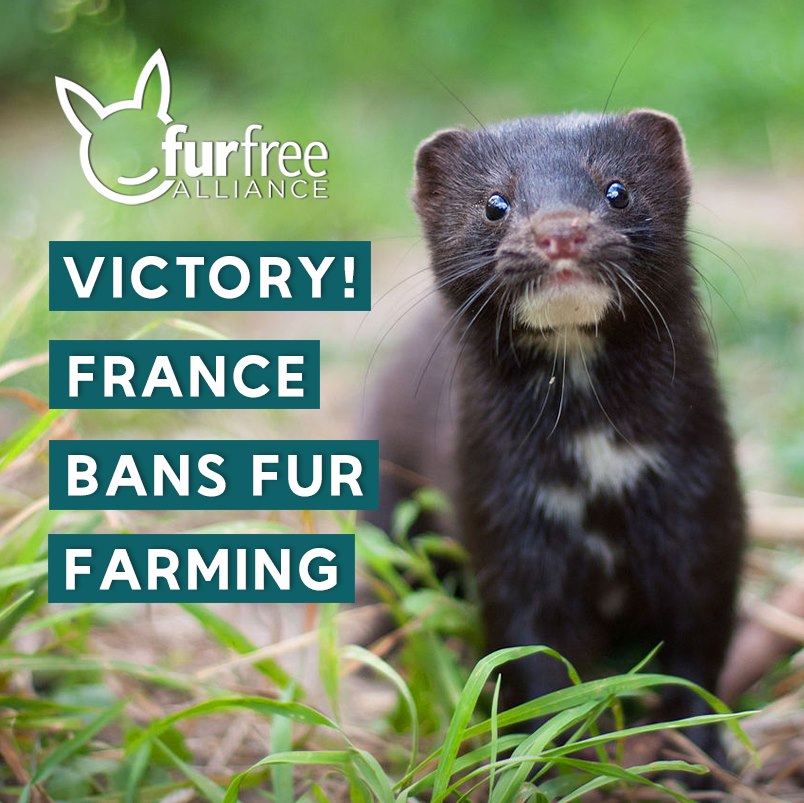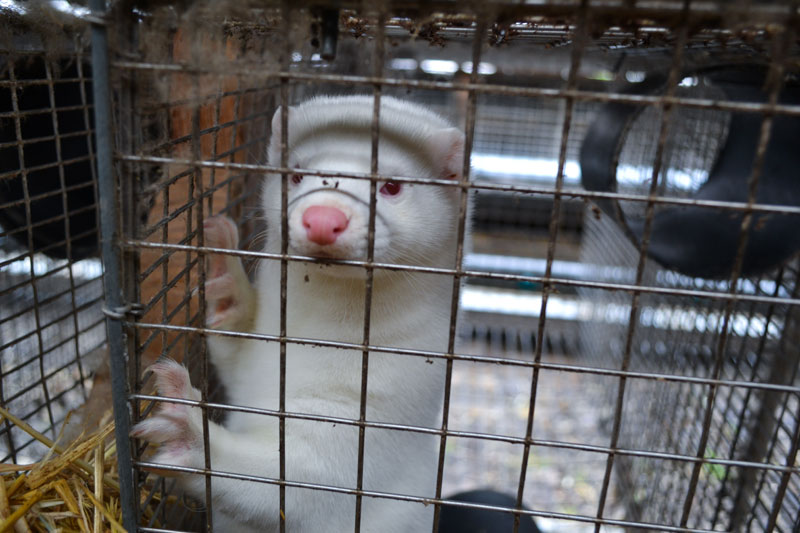Horrific Fur Farming – According by Laurence Lewis on Novermber 6, 2020 – Born Free USA distributed another report on the hide cultivating industry in the United States. The new exploration named Silent Suffering in Our Own Backyard: Fur Farming in the United States features genuine failings in animal government assistance guidelines, oversight, and a careless negligence for general wellbeing considering the ongoing flare-up of COVID-19 in various hide ranches in Utah, Wisconsin, and Michigan.
According to the report, notwithstanding numerous nations around the globe forbidding the remorseless act of cultivating creatures for the sole reason for cleaning them to utilize their pelts for garments, the U.S. has fallen behind and has found a way to shield creatures from this hopeless destiny in over 10 years. A few states were found to have no guidelines at all to give even least security to animals in hide ranches, while others couldn’t disclose to Born Free specialists which of their divisions of state had obligation regarding hide ranch oversight and administration.
“Notwithstanding the huge animal enduring associated with hide cultivating, the way that we are presently observing solid proof of hide ranches as a wellspring of COVID-19 during the progressing worldwide pandemic settles on the decision to end this savage industry in the United States even more dire,” Angela Grimes, CEO of Born Free USA, said in an assertion. “There is definitely no reason to have hide in our wardrobes in 2020, and the danger to creature government assistance and general wellbeing totally can’t be legitimized for such a negligible reason as a design trend.”
Wearing creature hide as garments has been consistently dropping out of design for quite a long time. As individuals from the public found out about the pitiless conditions looked by animals on hide ranches, they have betrayed the training by the thousand. A survey delivered in September 2020 affirmed that just one-in-four U.S. residents are agreeable to murdering creatures for their hide.
Worries over cold-bloodedness and diminishing interest has brought about many significant design houses, including: Armani, Gucci, Michael Kors, Prada Group, and Versace executing hide free approaches. They join creators, for example, Diane von Furstenberg, Stella McCartney, and Vivienne Westwood, who are spearheading hide free high design patterns. Stores, for example, H&M, Macy’s Inc., and Zara have likewise dedicated to going hide free, while makers, for example, Ecopel have filled the hole in the market left by the faltering hide industry by making high caliber and maintainable hide substitutes.
Notwithstanding the business slump, hide cultivates still exist and a large number of creatures are as yet raised and murdered all around the world; their inert bodies disposed of and their skins used to make superfluous covers, caps, or even knickknacks. Over 85% of hide utilized in style is gotten from animals in industrial facility hide ranches. Wisconsin is the main mink creating state, producing more than 1,000,000 pelts every year, trailed by: Utah, Idaho, Oregon, and Minnesota.
In 2018, there were an expected 245 mink ranches in 22 states creating 3.1 million animal pelts esteemed at $82.6 million dollars. These numbers just incorporate mink cultivates; no openly accessible records are saved for different species. All things considered, these figures do exclude ranches that breed animals like fox, wildcat, hare, and chinchilla, Therefore, the all out number of lives taken far surpasses these figures.
“The pitilessness; the severity; the silly misuse of life to serve human vanity. It needs to end. Will we, finally, begin to satisfy our latent capacity and become sympathetic creatures?” President of Born Free William Travers OBE told WAN.
Brought into the world Free is requiring a conclusion to hide cultivating in the United States by means of the execution of state-level prohibitions on the training. Temporarily, straightforwardness with respect to the area of existing ranches and the quantity of animals held by them is being requested in light of a legitimate concern for animal government assistance and general wellbeing.


